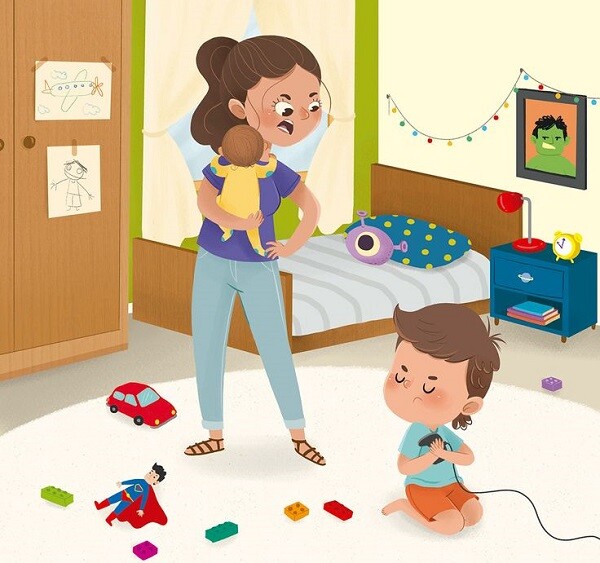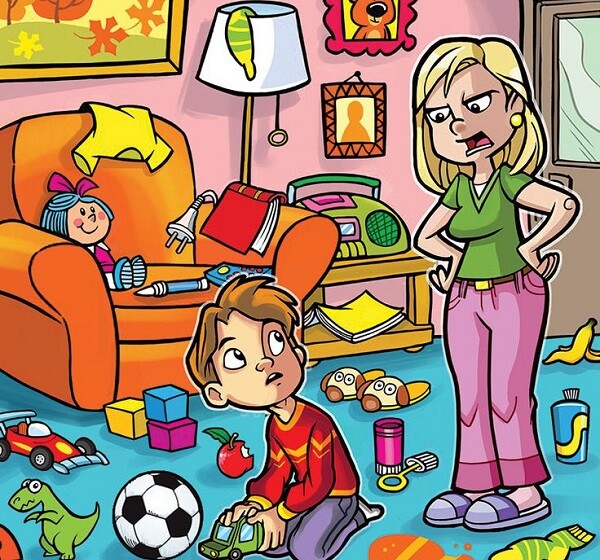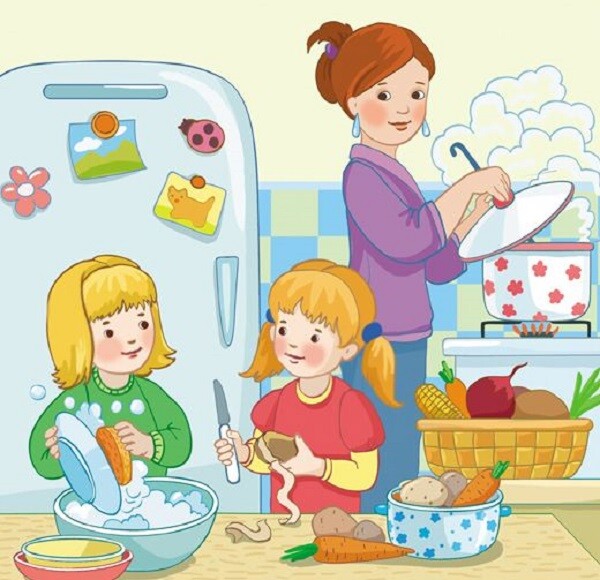Parenting can be a tricky journey, and sometimes, parents unknowingly engage in certain behaviors that hinder their child’s growth. These actions often stem from misconceptions, expectations, or pressures placed on the child, without realizing their potential impact on their psychological development.
Experts have identified three common scenarios where parents’ actions may limit their children’s potential:


Unloading Negative Emotions on Children
In moments of anger or frustration, many parents unintentionally unload their negative emotions onto their children. This often occurs during stressful situations when parents are unable to control their emotions, allowing negative thoughts to overwhelm their rational thinking.
Even when their children achieve something, instead of offering encouragement and praise, some parents tend to downplay their accomplishments: “What’s so great about that? There are many people better than you,” or “Don’t be too proud.” While these statements may not be ill-intended, they negate and devalue the child’s achievements.
Instead of feeling proud of their efforts, children may feel constantly compared to others, and their accomplishments diminished. Over time, this can lead to feelings of disappointment, discouragement, and a lack of motivation.
Prolonged exposure to this environment of negation can impact a child’s self-confidence. They may become shy, timid, and hesitant to pursue their true passions.
Children may feel unworthy of success and constantly believe that they are incapable of doing anything well. A lack of encouragement and recognition can lead children to believe that their efforts are never good enough, resulting in indecision and a lack of assertiveness.

Unloading negative emotions onto children.

Expecting Children to Conform to Parental Plans
Some parents firmly believe in predetermining their children’s life paths, considering it the right and obvious thing to do. For example, they may think that choosing a stable profession, such as becoming a civil servant or working for a state-owned enterprise, is the best option for their child’s future.
These plans are often based on the parents’ own experiences and a sense of security, so they want their children to follow suit. While there is nothing wrong with aspiring for a simple and stable life, this approach may overlook the child’s interests, passions, and personal choices.
When children express different ideas, such as pursuing arts, sports, or entertainment, many parents strongly oppose, believing that these careers are not serious, have no future, and are potentially risky. As a result, children are denied the freedom to choose their own path.
Life is not just about choosing a career but also about personal growth and discovering what truly makes one happy. Instead of forcing children to follow a predetermined path, create a supportive environment where they can express themselves, explore their dreams, and build their future.

Expecting children to conform to parental plans.

Lack of Support When Children Need It
Many parents are adept at leveraging resources and connections to provide various forms of support for their children during critical developmental stages.
They create a conducive learning environment, actively help their children expand their social networks, provide financial support, practical experience, and necessary guidance as their children navigate education and employment. However, alongside these positive contributions, some parents may overlook the importance of offering reasonable advice regarding school and career choices.
Imposing unrealistic expectations can place immense pressure on children. When they face numerous challenges, parental intervention may inadvertently add to their burden. This can make children feel trapped by adult expectations, leaving them little room to explore their interests or develop independently.

Parents should strive to create a supportive learning environment.
Therefore, experts advise parents to periodically reflect on their behaviors, continuously learn, and improve themselves. By becoming better guides and mentors, parents can minimize negative influences on their children’s development.
This self-awareness is crucial, as it allows parents to adjust their communication and support strategies, encouraging children to develop independent thinking and decision-making skills.
Simultaneously, children need to learn to strengthen their self-belief, courageously pursue their happiness and success, and strive to overcome environmental barriers.
The Parenting Expert: When Kids Act Out, Try the ‘Crow’s Law’ Method
By harnessing the power of the “Crow Law,” parents can unlock a more tailored approach to raising their children. This ancient wisdom offers a unique perspective on child-rearing, empowering parents to foster their offspring’s growth and development in a way that resonates with their individual needs and strengths. It is a tool that, when utilized effectively, can help parents create a nurturing environment that supports their children’s journey towards reaching their full potential.





































